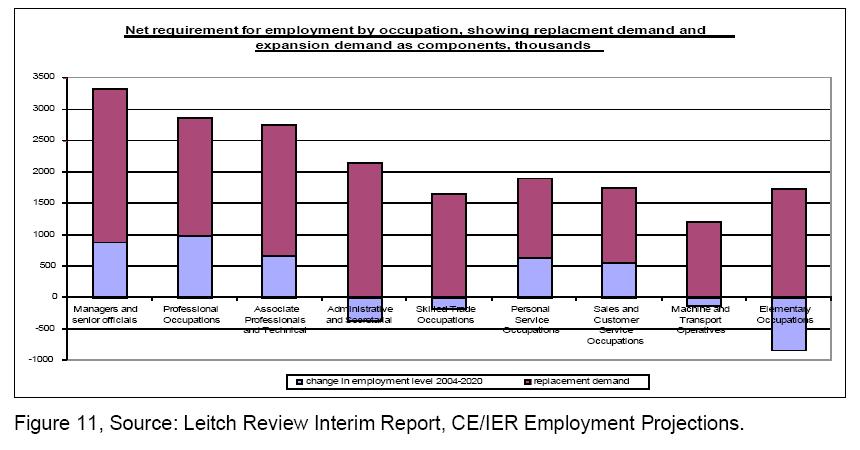UK skills and productivity: could do better

Last month the Department for Education and Skills and the Department for Work and Pensions published a survey of UK skills evidence: A Shared Evidence Base The Role Of Skills In The Labour Market. It’s clearly written and presents a wealth of information on the current state of the UK skills base by accumulating the results of 36 studies.
The UK skills story is never entirely happy, but the policy recommendations are fascinating.
The sad part of the story is:
- Although it has a good body of the well-educated, the UK also has a ‘long tail’ of the low skilled and unqualified
- Productivity in the UK is lower than in comparible OECD countries, 12% – 20% of this is down to the lower skills of UK workers
- In the future, the UK will require highly-skilled people being more productive
- Most workplace training goes to those who are already highly qualified
The good news is that the skills supply in the UK has been improving over recent years, and this is set to continue. Whether this will this happen fast enough is another question.
For me, the report’s key conclusions are:
- Skills alone may not be enough to get the low-skilled on benefit back into work
- Well designed and delivered vocational qualifications can produce returns of around 20%
- Workplace training is highly effective, but suffers from under investment – because there are strong disincentives for employer investing in it
This emphasis on employer involvment in training is particularly welcome –
Training will be necessary to help move some of the low qualified and lowskilled group into work. We need to build on and develop the best aspects of past programmes such as: developing strong links with employers; a clear work focus; use of employer placements; and support which is tailored to meet individual needs.
– the question remains, though: do we have the best mechanisms and structures for making it happen? Are Sir Digby Jones, and the various government bodies such as the SSDA the right way to get results? More on that in a later posting.
The DfES commissions a lot of studies. If you are interested in the state of the UK’s skills based, I recommend their list of published research for information on everything from ‘Learning Skills and the Development of Learning Capabilities’ to ‘Level 2 National Vocational Qualifications: the characteristics of those who obtain them, and their impact on employment and earnings growth’. This is the evidence and detail that link skills, performance and learning, and it’s certainly worth reading.



